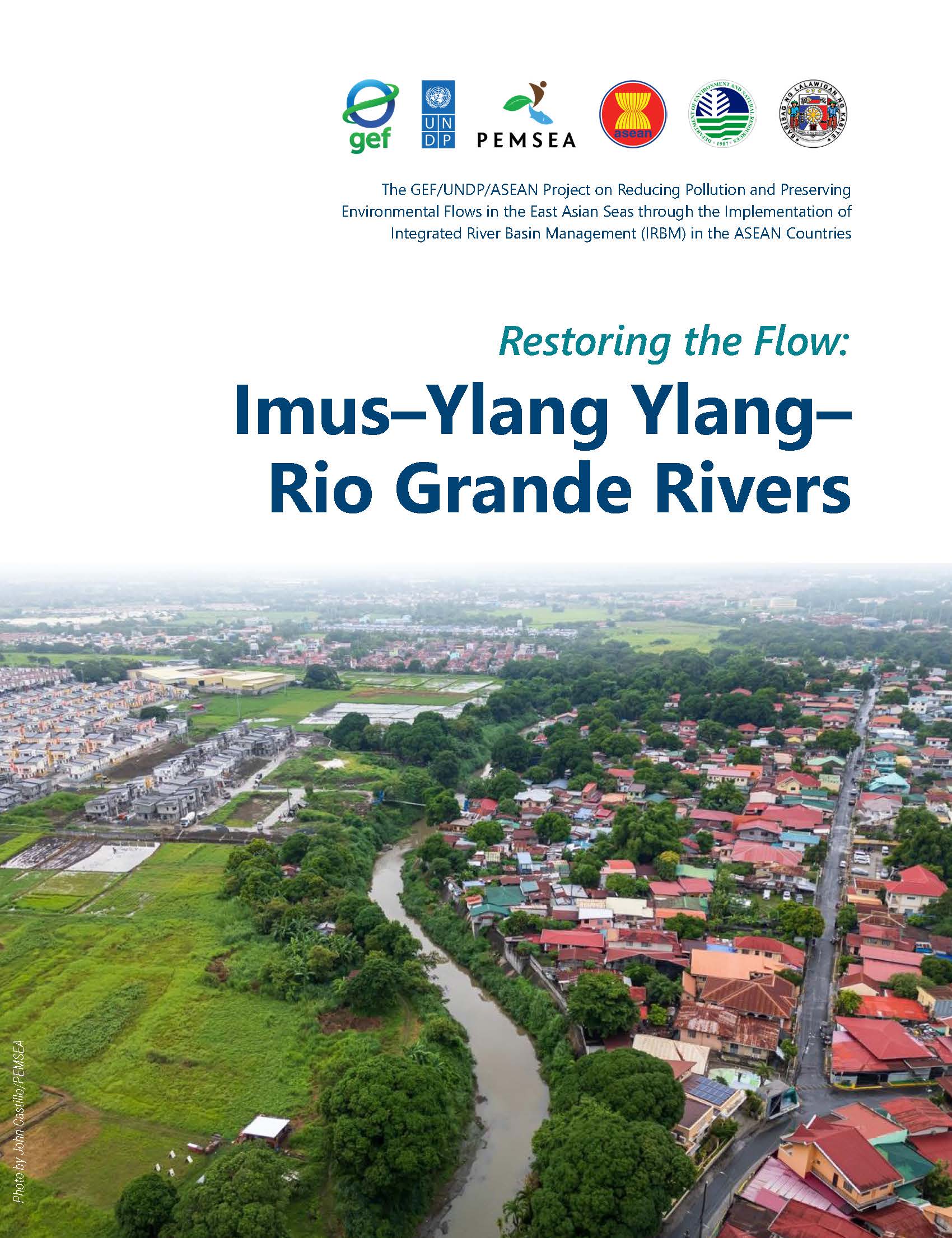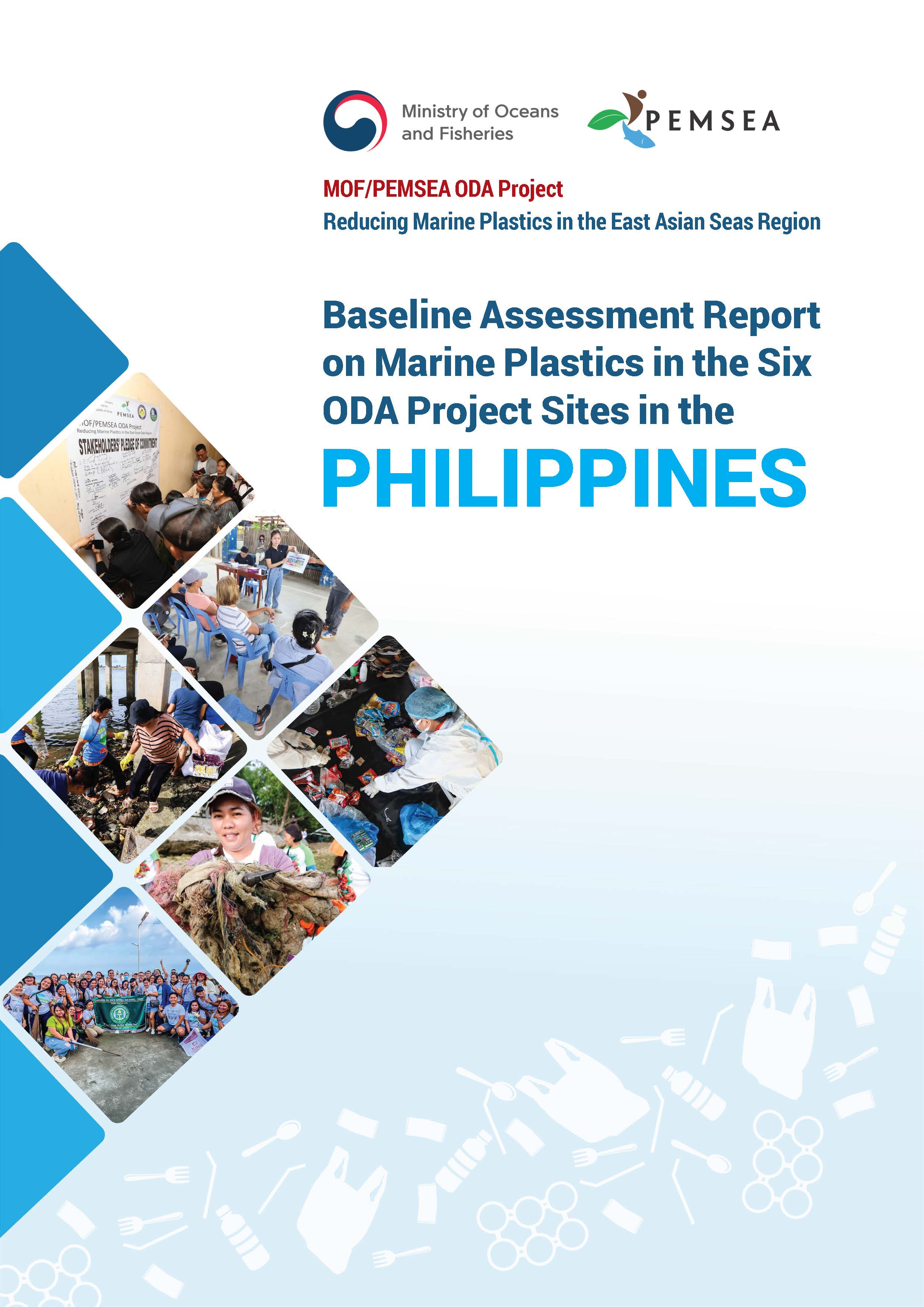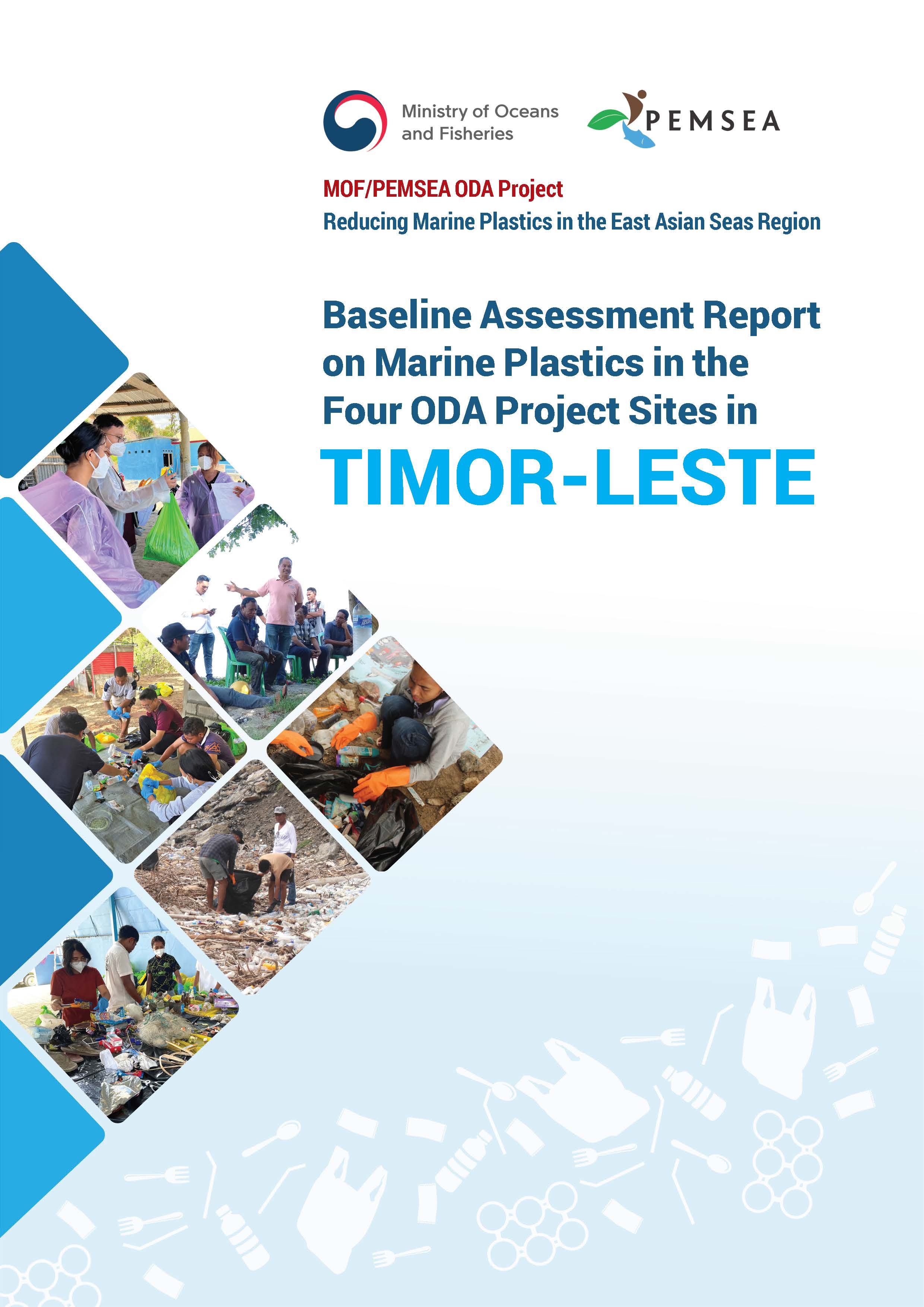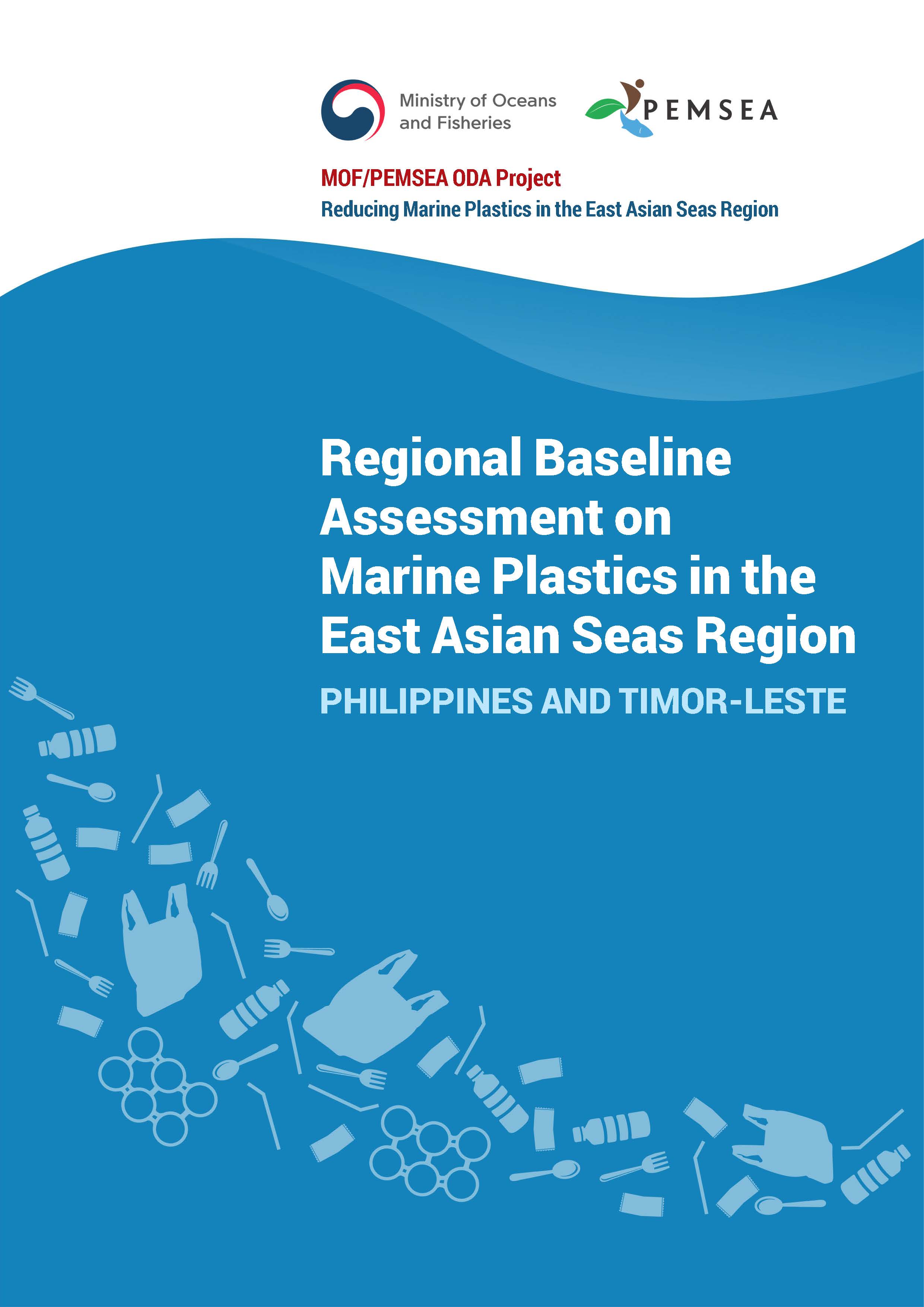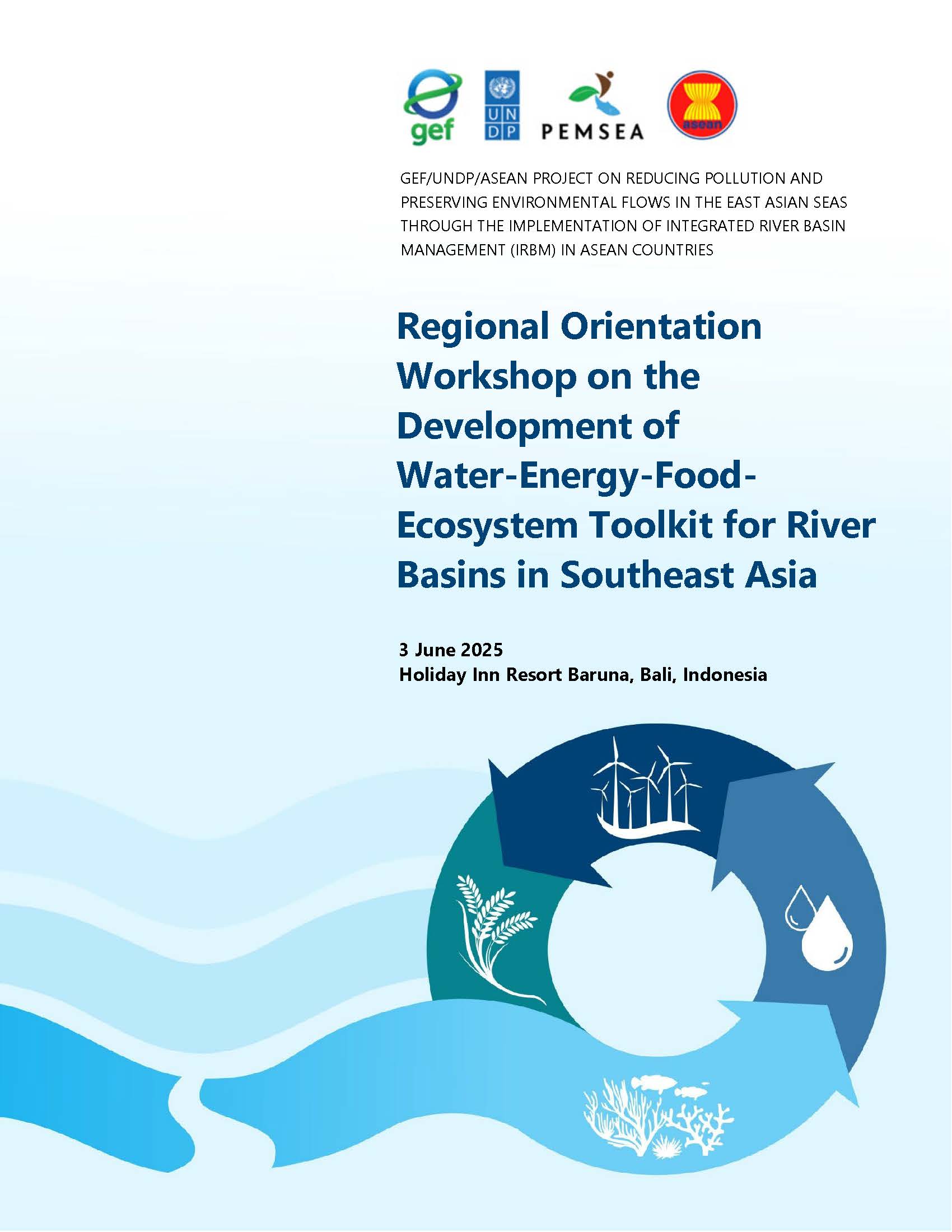
Breadcrumb
-
MOF/PEMSEA Marine Plastics ODA Project Third Regional Steering Committee Meeting
The Regional Steering Committee (RSC) meeting is the main decision making body of the Official Development Assistance (ODA) Project entitled “Reducing Marine Plastics in the East Asian Seas Region” comprised of the donor: the Government of Republic of Korea represented by the Ministry of Oceans and Fisheries (MOF), and the participating countries: the Philippines, represented by the Department of Natural Resources and Environment (DENR) and Timor-Leste, represented by the Ministry of Agriculture, Livestock, Fisheries and Forestry (MALFF) in collaboration with the Ministry of Tourism and Environment (MTE) and Ministry of State Administration (MSA). The Regional Project Management Unit (RPMU) of the PEMSEA Resource Facility (PRF) of Partnerships in Environmental Management for the Seas of East Asia (PEMSEA) serves as the Secretariat to the RSC.
The RSC meets at least once a year to review project progress, provide strategic direction and guidance, and approve the work plan and budget for the subsequent year’s project activities. The Chair of the RSC rotates among the participating countries. The inaugural RSC meeting in 2023 was chaired by the Government of the Philippines, represented by H.E. Undersecretary Jonas Leones of the Department of Environment and Natural Resources (DENR). The second RSC meeting was chaired by the Government of Timor-Leste, represented by Mr. Aleixo Leonito Amaral, Advisor to the Secretary of State for Fisheries, Ministry of Agriculture, Livestock, Fisheries and Forestry (MALFF). For the third RSC, the meeting was chaired by the Philippines, represented by Dr. Al O. Orolfo, Director of the DENR Foreign-Assisted and Special Projects Service (FASPS).
The 3rd RSC Meeting was held via Zoom on 10 December 2025.
-
MOF/PEMSEA Marine Plastics ODA Project Interim Regional Steering Committee Meeting
The Regional Steering Committee (RSC) meeting is the highest decision making body of the Official Development Assistance (ODA) Project entitled “Reducing Marine Plastics in the East Asian Seas Region” comprised of the donor: the Government of Republic of Korea represented by the Ministry of Oceans and Fisheries (MOF), and the participating countries: the Philippines, represented by the Department of Natural Resources and Environment (DENR) and Timor-Leste, represented by the Ministry of Agriculture, Livestock, Fisheries and Forestry (MALFF) and the Ministry of Tourism and Environment (MTE). The Regional Project Management Unit (RPMU) of the PEMSEA Resource Facility (PRF) of Partnerships in Environmental Management for the Seas of East Asia (PEMSEA) serves as the Secretariat.
The RSC convenes every year to report the progress and approve work plan and budget for the following year’s project activities. The chairmanship is assumed by both participating countries on an alternating basis. This inaugural RSC meeting was organized in Manila, Philippines and chaired by the Government of the Philippines, represented by H.E. Undersecretary Jonas Leones of the DENR.
The Interim RSC Meeting was held on 12 December 2023 via Zoom.
-
MOF/PEMSEA Marine Plastics ODA Project Second Regional Steering Committee Meeting
The Regional Steering Committee (RSC) meeting is the main decision making body of the Official Development Assistance (ODA) Project entitled “Reducing Marine Plastics in the East Asian Seas Region” comprised of the donor: the Government of Republic of Korea represented by the Ministry of Oceans and Fisheries (MOF), and the participating countries: the Philippines, represented by the Department of Natural Resources and Environment (DENR) and Timor-Leste, represented by the Ministry of Agriculture, Livestock, Fisheries and Forestry (MALFF) in collaboration with the Ministry of Tourism and Environment (MTE) and Ministry of State Administration (MSA). The Regional Project Management Unit (RPMU) of the PEMSEA Resource Facility (PRF) of Partnerships in Environmental Management for the Seas of East Asia (PEMSEA) serves as the Secretariat to the RSC.
The RSC meets at least once a year to report on the progress of the project, sets its strategic directions and guidance and approves work plan and budget for the following year’s project activities. The inaugural RSC meeting in 2023 was chaired by the Government of the Philippines, represented by H.E. Undersecretary Jonas Leones of the DENR. This year, the 2nd RSC meeting was chaired by the Government of Timor-Leste, as represented by the Advisor to the Secretary of State for Fisheries, MALFF, Mr. Aleixo Leonito Amaral.
The 2nd RSC Meeting was held on 17 December 2024 via hybrid format at Radisson Park Inn, Quezon City and Zoom.
-
MOF/PEMSEA Marine Plastics ODA Project Intersessional Regional Steering Committee Meeting
The Intersessional Regional Steering Committee (RSC) Meeting of the MOF/PEMSEA ODA Project on Reducing Marine Plastics in the East Asian Seas Region was held on 17 September 2025 via Zoom, in line with the agreements made during the 2nd RSC Meeting in December 2024. The primary objective of this session was to review and endorse the detailed designs of pilot projects in the six Philippine project sites: Bulan, Calbayog, Daanbantayan, Dipolog, Puerto Princesa, and Tandag.
These pilot projects form part of Component 2 of the ODA Project, which focuses on demonstrating best practices and locally adapted solutions for marine plastics reduction. Designed to respond directly to site-specific challenges identified during the baseline assessments, the pilot projects aim to improve local plastics and waste management systems, enhance community engagement, and reduce the leakage of plastic waste into coastal and marine environments. The interventions are aligned with national and local priorities.
During the 2nd RSC meeting in 2024, the pilot project concepts for the Philippine sites were approved. Subsequently, the detailed designs of the pilot projects have been developed by the consulting firm, EECI, Inc., in close collaboration with local government units (LGUs) in 2025. These designs reflect the insights, technical inputs, feasibility, and on-ground realities gathered through extensive stakeholder consultations.
The Intersessional RSC meeting was an essential step to ensure that the proposed interventions are sound, feasible, and ready for implementation. The outcomes will not only guide the pilot project implementation but also reinforce the collective commitment of project partners to achieve measurable impacts in reducing marine plastics in the Philippines.
The meeting was organized in hybrid format: at the conference room of the office of Undersecretary Jonas R. Leones and through Zoom for the online participants.
-
IRBM Stories - Restoring the Flow: Imus-Ylang Ylang-Rio Grande Rivers
In Cavite, Philippines, river rangers, mangrove stewards, fishers, artists, and local government partners are working together to restore the Imus–Ylang Ylang–Rio Grande Rivers and their nearby waterways—removing debris, caring for mangroves, and promoting cleaner, more sustainable livelihoods. With continued partnerships, coordinated planning, and stronger local and national governance, these rivers can once again support farms, fisheries, and local livelihoods. As the province of Cavite continues to grow, the restoration efforts demonstrate how progress and conservation can advance together, helping keep these waterways vital for communities.
Read more about the Imus–Ylang Ylang–Rio Grande River profile, which highlights community realities and the measures the government has initiated to protect and conserve this river basin.
-
Baseline Assessment Report on Marine Plastics in the Six ODA Project Sites in the Philippines
This Baseline Assessment Report of MOF/PEMSEA ODA project on the Reducing Marine Plastics in East Asian Seas Region includes both the Plastic Analysis and Characterization Study (PACS) and a Knowledge, Attitude, and Practice (KAP) Survey, specifically targeting key coastal areas in six Philippine sites: the municipalities of Bulan and Daanbantayan, and the cities of Calbayog, Dipolog, Puerto Princesa, and Tandag. These assessments aim to uncover the specific dynamics of plastic waste generation and local community behaviors toward waste management, supporting the development of data-driven interventions to address marine plastic pollution effectively.
The findings of the synthesized national baseline assessment provide valuable insights that can assist local government units, national government agencies, and relevant stakeholders in developing targeted policies and interventions. These strategies are aimed at improving solid waste management practices and reducing marine plastic pollution in coastal cities and municipalities.
-
Baseline Assessment Report on Marine Plastics in the Four ODA Project Sites in the Timor-Leste
This Baseline Assessment Report of MOF/PEMSEA ODA project on the Reducing Marine Plastics in East Asian Seas Region includes both the Plastic Analysis and Characterization Study (PACS) and a Knowledge, Attitude, and Practice (KAP) Survey, specifically focusing on key coastal areas in four municipalities in Timor-Leste – Atauro, Dili, Liquiçá, and Manatuto. These components are designed to understand the specific dynamics of plastic waste generation and local community behaviors towards waste management as basis of project decisions and 10-year marine plastic management strategies and action plans, which will be developed, adopted, and implemented by local governments and stakeholders.
The findings of the synthesized national baseline assessment provide valuable insights that can assist local authorities, national government agencies, and relevant stakeholders in developing targeted policies and interventions. These strategies are aimed at improving solid waste management practices and reducing marine plastic pollution in coastal municipalities.
-
Regional Baseline Assessment on Marine Plastics in the East Asian Seas Region (Philippines and Timor-Leste)
As part of Component 1 of the MOF/PEMSEA ODA project on the Reducing Marine Plastics in East Asian Seas Region, a Plastic Analysis and Characterization Study (PACS) was conducted to provide essential data to guide project decisions and establish 10-year marine plastic management strategies and action plans, which will be developed, adopted, and implemented by local governments and stakeholders. This regional baseline assessment on marine plastics includes the conduct of PACS and Knowledge, Attitude, and Practice (KAP) Survey, specifically focusing on key coastal areas in the six cities and municipalities in the Philippines: Bulan, Calbayog, Daanbantayan, Dipolog, Puerto Princesa, and Tandag; and four municipalities in Timor-Leste: Atauro, Dili, Liquiçá, and Manatuto. These components are designed to understand the specific dynamics of plastic waste generation and local community behaviors towards waste management.
The regional synthesis identified persistent challenges across the plastic waste value chain, including high plastic waste generation, weak segregation, limited collection coverage, low recovery performance, inadequate disposal systems, and continued plastic leakage. Addressing these issues requires targeted interventions across all stages of the solid waste management system. Key recommendations focus on reducing single-use plastics through local policy and behavior change, improving segregation by providing bins and strengthening implementation, and expanding collection through additional vehicles and better route planning. Recovery must be enhanced by upgrading facilities and linking communities to recycling markets, while safe disposal options should be developed or improved to reduce open dumping and burning.
-
IRBM: Workshop Report on the Regional Orientation on ReWEFE Toolkit
The GEF/UNDP/ASEAN Integrated River Basin Management Project convened a Regional Orientation Workshop on the Development of Water-Energy-Food-Ecosystem (WEFE) Toolkit for River Basins in Southeast Asia on 3 June 2025 in Bali, Indonesia to introduce and demonstrate the applications of the toolkit in selected river basins of the project.




